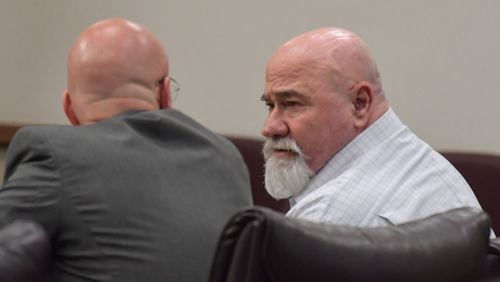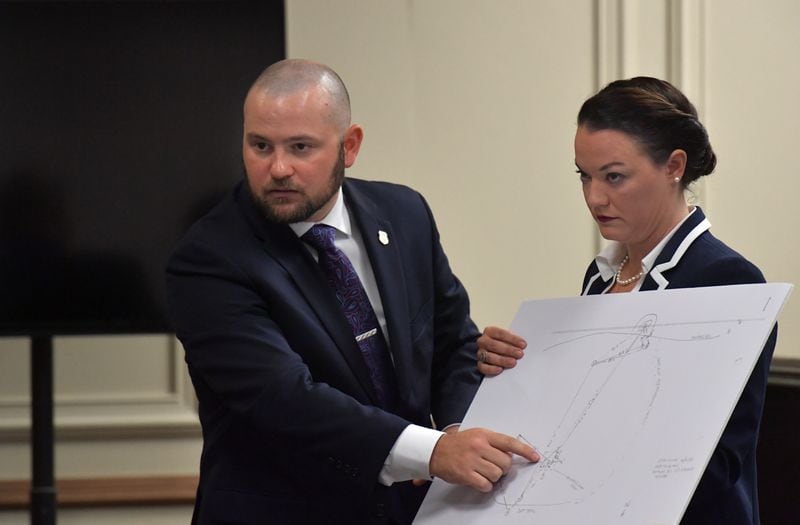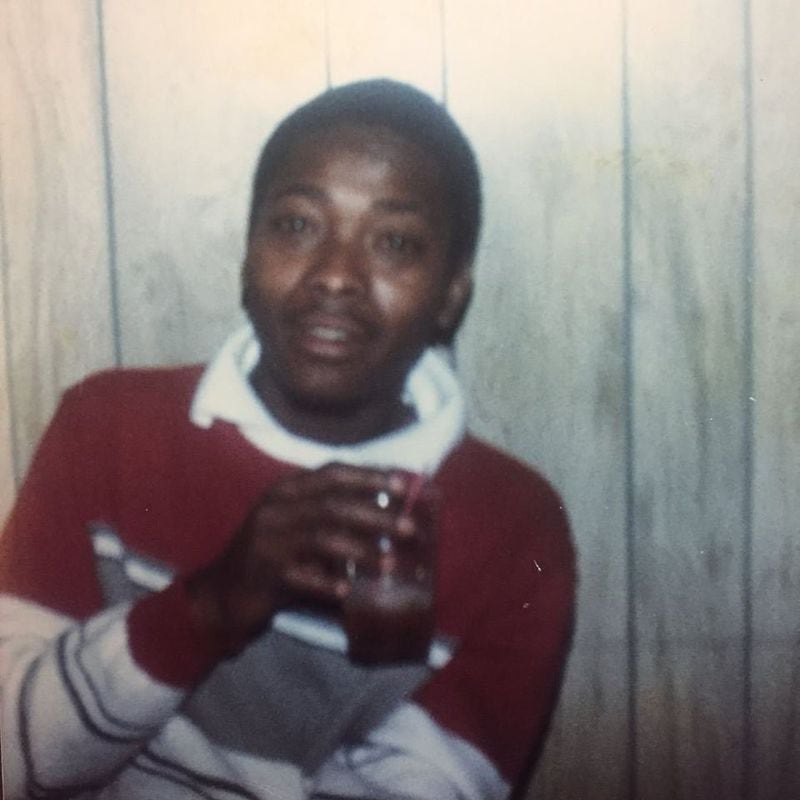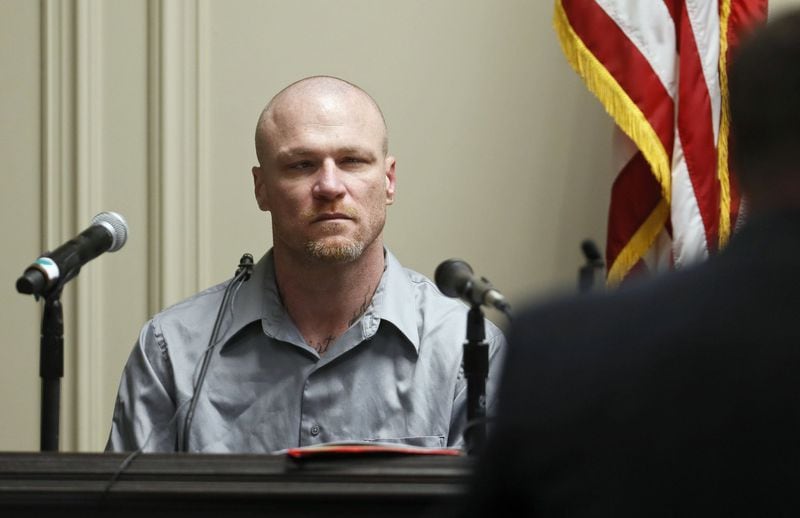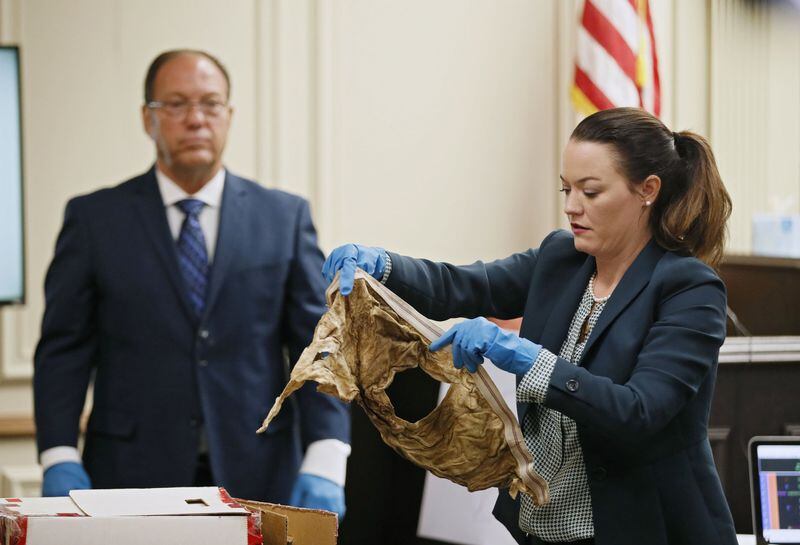A jury weighing whether a Spalding County man should be convicted in the brutal killing of a young black man more than three decades ago has gone home without reaching a verdict.
Franklin Gebhardt is charged with killing 23-year-old Timothy Coggins, stabbing him 30 times and dragging his body behind a pickup truck, in 1983. Prosecutors say the slaying was racially motivated.
The jury, composed of 10 whites members and two black members, deliberated for roughly an hour before calling it quits late Monday. They are expected to resume deliberations Tuesday morning.
Their decision could hinge on which witnesses they believe.
Either Gebhardt is being set up by a ragtag collection of opportunistic criminals, few of of whom knew each and all but one currently incarcerated, or those same six witnesses who testified that the defendant claimed credit for Timothy Coggins’ gruesome 1983 murder want to see justice done. And, perhaps, some relief from their current sentences.
Cold cases are challenging enough. But with significant physical evidence collected from the crime scene missing, prosecutors have been forced to rely on circumstantial evidence pulled from a well located on Gebhardt's property, filled with decades of debris. A size 10 shoe that had apparently been burned. A broken knife handle, and broken blades. A white t-shirt with several rips, as if cut by a knife, according to GBI special agent Jared Coleman.
It was Coleman who re-opened the cold case in March 2017, interviewing 120 witnesses since then. But, as defense co-counsel Scott Johnston pointed out, those suppositions were not supplanted by expert testimony.
Credit: HYOSUB SHIN / AJC
Credit: HYOSUB SHIN / AJC
The state’s key witnesses, Coleman acknowledged, are a motley crew. There’s a couple of convicted meth dealers. And the witness whose interview led Coleman to bring Coggins’ murder out of the mothballs, Christopher Vaughn, is a convicted child molester.
“It would be nice if in every case we got to talk to people like the county pastor with no past whatsoever,” Coleman said.
“You get what you get,” he added.
It was also disclosed that Vaughn said he had gotten the address to the Coggins’ home soon after the murders.
Earlier in the trial, Telisa Coggins, the victim’s sister, said around that same time the family received ominous notes warning “they would be next,” one of which was accompanied by a severed dog’s head.
The defense restes after just two witnesses.
Judge Fletcher Sams said it appears jury deliberations will begin later today, meaning closing arguments will follow soon after the lunch break.
Here are five things to know about the case:
1. More proof that cold cases pose a steep challenge for prosecutors.
According to a 2011 U.S. Department of Justice study, only 5 percent of crimes considered “cold” ever produce an arrest. And only 1 percent end in a conviction.
Few cases were colder than this one. Lots can happen in 35 years: Memories fluctuate, witnesses disappear and, as with any investigation from that time, DNA evidence was not collected.
2. Indifference, incompetence don’t help.
In her opening statement, prosecutor Marie Broder characterized the initial investigation into Coggins’ death as “incomplete” and “shameful.”
“They didn’t care about Timothy Coggins,” she said.
Clint Phillips, who led the 1983 probe, confirmed the case was never a top priority for then-Sheriff James Freeman. Phillips said he was one of three investigators in the office and testified he was often shifted to other cases in the weeks and months after Coggins’ mutilated body was discovered in the rural town of Sunny Side. After a few months, the case was closed.
When the case was reopened last year, significant evidence collected from the crime scene had gone missing. Tire impressions from the truck that allegedly dragged Coggins’ body back and forth under the power lines off Minter Road, where his body was found, were gone. Same for the victim’s bloody sweater, which contained hair samples. Also missing: a wooden club and an empty Jack Daniels bottle.
THE TRIAL SO FAR
Day 3: Alleged Spalding killer defiant, non-committal in jailhouse interview
Day 2: Damaged evidence, shifty witnesses mark truck-dragging murder trial
Day 1: Race takes center stage on Day One of Spalding cold case murder trial
Jury selection: Potential jurors unfamiliar with notorious Spalding murder
3. A motley crew of witnesses.
Six men have testified that Gebhardt told them he killed Coggins. Five are incarcerated. One is a member of the Aryan Nation; the other, Christopher Vaughn, who even wore a wire when placed in a cell with Gebhardt, is a convicted child molester. (Benjamin Coker, the Griffin Judicial Circuit district attorney, insists no deals were offered to the imprisoned witnesses in exchange for their testimony.)
Some of their accounts varied. Terry Reed, a former cellmate of Gebhardt’s, said the defendant claimed to have severed Coggins’ penis and stuffed it into the victim’s mouth. Willard Sanders said Gebhardt, a friend since childhood, told him a few weeks after the murder that he was responsible and did so not because of racism but over a “drug deal gone bad.”
4. Not very smart or just playing the part?
As he sat for an interview with investigators last year at the Spalding jail, Gebhardt made it clear he’s not very smart, telling them he can’t read or write and stopped attending school after sixth grade.
Peppered with questions for an hour, Gebhardt neither denied nor confirmed any involvement in Coggins’ death. Asked if he had anything to do with Coggins’ death, Gebhardt replied, “I ain’t going to tell you I did. I’m not going to tell you I didn’t.”
Patrick John Douglas, the Aryan Nation member, testified Gebhardt confided he was going to tell differing stories to opportunistic informants in order to trip up investigators.
And, as the defense noted, Gebhardt volunteered samples of his hair to see if it matched one found on Coggins’ body. Could he have known that hair sample was actually missing?
Told that a witness said he threw the knife used to kill Coggins down a well on his property, Gebhardt dared them to dig it up, knowing he had burned and tossed decades’ worth of debris down the well.
5. A dare accepted, a bigot exposed.
Using a hydrovac, GBI agents basically sucked out everything that was in Gebhardt’s well, filled with trash and debris dating back to the 1980s. They turned up some suspicious items, including a metal chain, a knife handle and two blades. An undershirt and a size 10 tennis shoe were also found, noteworthy because when Coggins’ body was found he wore only by underwear and jeans. But storing evidence in a dank well is a sure way not to preserve it. Incriminating, perhaps, but not conclusive.
That pretty much sums up the state’s case. But there was some clarity. During questioning by law enforcement, Gebhardt said he didn’t like being around black people, and when told some had suggested Coggins had been intimate with his sister, Gebhardt grew irate, hurling racial epithets and threatening a lawsuit.
